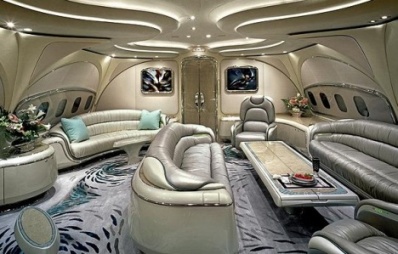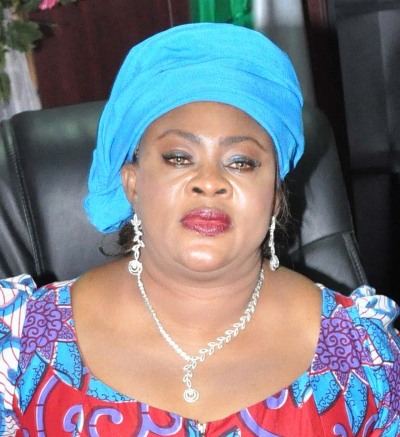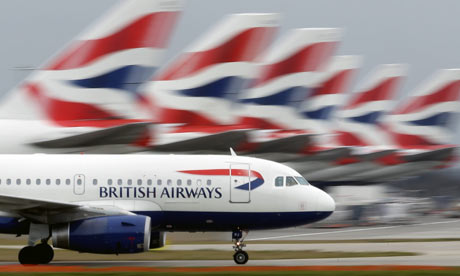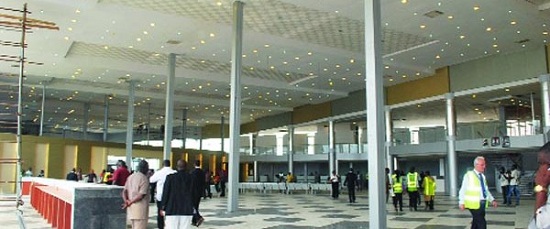Our goal is to ensure zero accident, zero fatality in our airspace, says Demuren
The Director General of the Nigerian Civil Aviation Authority(NCAA), Dr Harold Olusegun Demuren recently spoke on various issues affecting the industry in Nigeria as it affects airlines, the agencies including the one from where he calls the shots, the challenges the ways forward and on top of it all the strides in ensuring that safety is given deserved priority by all the corporate stakeholders in the sector.
Below is the excerpts from the interview:
The aviation industry is seen to be highly technology driven. How does NCAA use information technology to drive its operation?
You can not get Category 1, you can’t even attempt it, if you are not technology; the platform has changed. Very soon one of the things you will see is paperless NCAA.
Already we have started issuing e-licenses; these are licenses we are issuing right now. Very soon you will be able to apply on-line for our licenses. There are a lot of things going on in this area.
In our commercial area, we have moved to e – ticketing, we have moved tremendously, in fact some of the airlines are owing us some money; but we are now talking about having our own e – payment platform in which we can deduct the money right at source. So these are the things we are trying to do. We are also automating most of our services.
Height clearance, helipads certification, airport certification, everything virtually, and we have in the flight safety porter which virtually automates all our services from phase one, from the 8th critical elements in attaining Category 1 to the last. We are on the web; you can see what we are doing. Very soon we are going to get to a point in which virtually all our activities will be fully automated.
Before you go on sir, could you shed more light on the automated licensing?
Before now we used to write your license and type it and give it to you; now, these are things of the past; it’s now fully automated, once you have done your examinations and pass and it is there, it is rolled out and you get it. You get an e-mail informing you about your license, it is all printed, it’s in colour and all rolled out the same day.
In other words, we are also minimizing the delay, it’s usually about one week to take an examination and then you wait for the result, we can do it now in one day for you. If you pass in, if you fail you are out.
Recently, you were elected the president of the 37th General Assembly of the International Civil Aviation Organization (ICAO).Congratulations. What is the significant of this election? And how did you use that recognition to better the image of Nigeria and NCAA?
On that faithful day, as I told them in my acceptance speech, it was a great honour for my country Nigeria, because Nigeria was going to be 50th and we were to celebrate our 50th anniversary two days after.
For me I was grateful and humbled ! You have about 178 honourable Ministers responsible for civil aviation, you have over 190 Director – Generals responsible for civil aviation, they are all there and ICAO appoints one person to be president of the assembly.
The assembly meets once in three years and to get nomination from the United States of America and seconded by Australia and Europe saying it is unanimous, we have no other candidate, I think that is good for our country Nigeria.
You see, it’s not personal to me, it’s for my country Nigeria and it’s to Africa. We were about 58 African countries there; they said to themselves “it was the greatest day for Africa”.
We have never had it like that. No African, no black man has ever been the president of ICAO Assembly, and this was going to a Nigerian. I ,as a person know it is important for our country and for the continent of Africa.
That’s how we feel. And we give thanks to our Creator, because that year’s assembly was a very difficult one, because we were dealing with safety, security and environment and environmental issue was so crucial; thank goodness, we made success out of it.
The council of ICAO could not even agree on the case if environment, but that is the only agreement we have got in the world today on climate issue. So it was a great success for Africa and the image of Africa just shot up.
It’s not just me, not Nigeria; everybody knows this was one of the very best assemblies with major achievements. As we concluded the assembly, we were getting calls from all over the world, U.S State Department, Canada, UK, all praising; this is great; we have never gotten such an agreement like this.
Even, United Nations acknowledged what we have done. But we give thanks to God, everything you see in life is an opportunity to serve and being given all the grace to serve and we can do it better, we can only give thanks to the Almighty.
Since you assumed office, what has been your greatest challenge?
My greatest challenge? I have got some challenges; may be the greatest one would be Umar Farouk Abdulmutallab.
You remember what happened on December 26th 2009? That was a great challenge because of its security implications. It was a major security challenge to us.
It was during Christmas, a boxing day when all of us were set for merriment; suddenly my phone rang in the middle of the night quite unusual; I should wake up my Minister to say there is a problem.
He woke me up and said “Dr Demuren, are you watching the television? I said no sir, in fact I have just been sleeping. He said watch television and tune to CNN, there is problem. And I did, ‘wao’ Nigeria, Nigeria, Nigeria!!! I was so worried.
Of course that night I took my phone and woke up all my colleagues, all the security agencies at the airport, I woke everybody up and by 7 am this office was full and we did not leave till 9 pm.
We made a statement, I read the statement to the international community at about 9:30 pm; we did not leave this place until that time.
I am not sure anybody even cared to eat anything. We had to find a solution, I am happy that our name which was put on the list of countries of interest watch list; were able to remove Nigeria’s name from it. That was a great challenge; but we give thanks to God that we were granted the grace to overcome.
What is your main driving force in implementing your objectives?
Well, let me tell you, our number one goal is safety, all my honourable Ministers have always told me including the present one, they will say Dr. Demuren, we recognize what you are doing, but don’t forget safety, safety, safety!
They always said it. So that is my goal; when I came here – you know I came here at the wake of the Sosoliso aircraft accident and during that Christmas everybody got Christmas card and lots of presents but I got a present I did not know and I put it under the Christmas tree and when it was time to open it, I did and it was the picture of the Sosoliso accident and there was a woman that lost three children.
That was what they sent to me and one of my friends said, when you get to this position remember this picture all the time and make sure this will never occur again.
I was very sad; first of all I thought it was a normal gift. So I took it to my alter, I put it there as I knelt down and prayed that this would never occur again. So that has been my watch word over here. We can talk about anything else but when it comes to safety, you can’t get me wrong. You must follow the rule, as I told you the only job I have is to enforce safety regulations.
I must make sure that that is what we do. So that is it, it’s a draft, that’s what we do, that’s what we dream, that’s what we think and that’s the only thing we can do. We must have a safe operation. When a passenger goes to the airport and buys a ticket it’s as if we have given you a promissory note and this true. I don’t care what airline he is buying it from, that we are going to carry you from point A to point B safely and I want us to deliver on that promise.
So we must work hard on it whether it’s the airline or the airport, whether it’s the airspace, everything has to be safe and that is the totality of what we are trying to do.
What is your greatest joy as D.G and what will you describe as your most unhappy moment?
My happiest moment! That is something else right now; before we went to Montreal (Canada), I thought it was Category 1. The category one came and it was simultaneously announced in Nigeria and in Washington DC.
We were just summoned straight; the Ambassador came and announced this; that was great moments of joy for me as a person, for all my staff and of course our country Nigeria.
And again this thing happened also in ICAO, we sat down and suddenly we looked at 178 countries and their ministers and DGs, suddenly there is a nomination and the guy from United States came up and said I want to nominate Harold Demuren of Nigeria as president of ICAO Assembly.
I couldn’t believe it. So those are the greatest moments of mine. And my saddest moment, remember the incident in Bebi (Airstrip, near Obudu), when we lost that aircraft we couldn’t find it I was extremely very sad that it occurred, but again we learnt from that and that will never occur again in this country.
We have now developed our systems, the best technology is what we have acquired, we know where the airplane is, not primitive method but the latest technology.
Later on we will invite you; I promise you in the next three months we will invite you when we are going to open the place; we have it downstairs here, where we can see all aircraft flying in Nigeria.
If it’s flying, we know, if it’s on the ground we know, I can Google it and show you. That’s what is good; when you have a problem you must solve it. And that’s what we believe in, it’s technology that is what we learnt, we must do it. In three months time I will invite you to come and see.
What do you see as some of the most pressing hurdles that the NCAA still needs to surmount to put it at par with its peers in other CAA’s in Europe and the Americas?
I think we need now to improve our infrastructure. We have three challenges; ageing infrastructure, ageing workforce, and inadequate funding.
Since Murtala Mohammed International Airport was built in the 70s we have not had another terminal building since then; thirty years after, it has done well but 30 years has gone.
We should do something else; we are meant to build another one. To me that’s a major challenge, look when you are flying an airplane, you can sleep now, it’s very safe now and we pray to keep it that way.
Our airspace has improved; there is radar, we have improved our MET (meteorological services), all those services; that is good. However, when the passenger come to the airport, if you have to wait three hours to get your luggage, it’s not good enough, the facilities are over stretched and you can’t just blame the Federal Airports Authority of Nigeria (FAAN); it’s a 1970 architecture.
We are now in 2011 we need to do new things now; those are the things we should be talking about. We are now Category 1 certified. We are now making Nigeria the hub for Africa.
So this is important for us to do; we must do that. And they are all looking up to us that we are going to do it; the whole world is looking to us, that Nigeria must do it. We have done it in the past; we can do it again.
So, basically what do you see as your focus for this year?
Well, basically we kicked off from where we stopped last year. And the main thrust for this year is to sustain those achievements and make sure we build on them and move forward. Our goal still remains for this year and the years beyond: zero accidents, zero fatalities. And in doing that, that is crucial to us, we must ensure that we have a safe operation. I should mention this; no traveler will go on an airline if he knows he is going to have an accident. So our primary goal is safety.
What is your impression on the attitude of foreign airlines to corporate social responsibility in Nigeria?
Foreign airlines in Nigeria are having a field day. I came back to this country in 1979. Then, Nigeria Airways could match British Caledonia. They operated the same aircraft. They trained the same crew. The market share difference was minimal.
There was that balance. Now, we have lost all that. Foreign airlines in Nigeria are having a field day. Right now, we are almost carrying the leftover. That’s why we need to support our own airlines and make sure they are strong.
We must strengthen our institutions to make sure they can provide the services. Yes, there is competition. I like sustaining competition because with it, you have good services.
Today, you can see the plane Arik Air is flying on international operations. Good competition is coming in and we will remove all obstacles to make sure they can compete effectively.
That’s the way to get there. Unfortunately, because the foreign airlines have been having a field day, the whole thing has been in their favour. Emirates came in few years ago doing daily flights. Before we knew it, it was two flights daily. You can hardly get a seat.
Of course, I am jealous. I like to have a Nigerian airline that can do that. But how can this happen? I must have a strong Nigerian airline that can compete and can sell those seats. We want our airlines to go to Paris, London, and Dubai.
How can they do that? The airline must be a member of IATA. If they can sell your ticket for you, you will be able to interline. That is what we are asking our airlines to do. We want them to get good technical partners and be able to partner.
That is why we said we would like them to be IOSA compliant. I remember several years ago when they asked if it was compulsory. I said we would like to make it compulsory.
They said they would like to make it voluntary. We settled that it was going to be voluntarily compulsory. We are working with them to make sure we improve and get them to compete.
As the Director General of NCAA, are there things you think should be done differently in 2011 by Nigerian airlines?
Firstly, they need to improve their corporate image. Nigerian travelers are very sophisticated. When they know you are going to have a safe operation and that you are regular and punctual; and they have confidence in the system, they will travel with your airline.
Nigerian airlines need to get the confidence of the flying public. It is very important. We have lost it over the years but it is coming back. Then our government needs to assist them to make sure they can win that confidence and that they will have an edge. You cannot be wrong supporting your own. If we cannot support them, who will support them?
Go to Europe. In England, they support British Airways. In France, they support Air France, in the US, they support American Airlines. In Holland, they support KLM. So you must support your own.
In Nigeria, we are already supporting our own by making them strong. They are bringing in good aero planes now. They have Boeing 777s, A340s and A330s. They can do it well. We also need to improve our cabin and in – flights services.
Would you say that NCAA is living up to expectations as regards consumer protection?
I think we have tried. It is a major challenge. Last year alone, we had thousands of reported cases of lost baggage, delayed flights and flights cancellations but it happens all over the world. There is the weather problem. There was the volcanic ash problem. These are natural causes. What we do is that we make sure that they put these people in hotels. We get some revenues back to them. There is a lot of room for improvement in NCAA. We are not there yet. What we have done is that we have employed lot of people now.
Source : Vanquard








